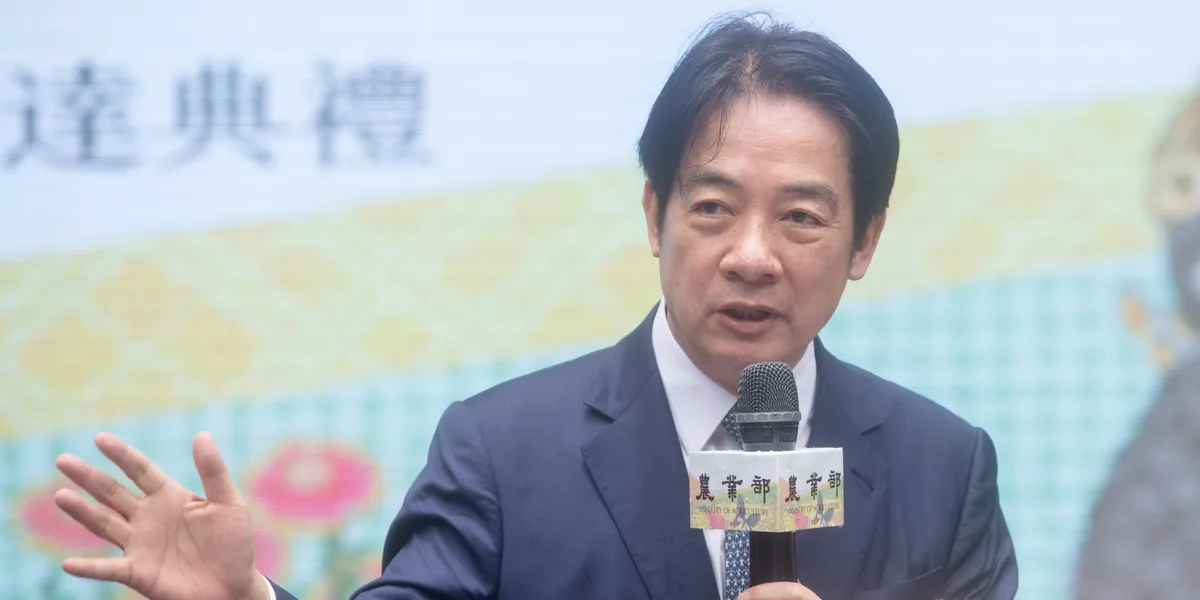Taiwan’s Defiance: Li Ching-te’s bold stand against Beijing
In a ground breaking and assertive move, Taiwanese President Li Ching-te openly labelled the Chinese Communist Party (CCP) as an external hostile force, marking a historic first in Taiwan’s political stance. Alongside this declaration, he introduced 17 national security measures aimed at countering Beijing’s influence and safeguarding Taiwan’s sovereignty, democracy, and freedom. This bold step not only underscored Taiwan’s defiance but also sent shockwaves through the CCP’s internal power structure. Exiled legal scholar Yuan Hong Bing highlighted the profound impact of Li’s statement, which disrupted the CCP’s leadership dynamics. While the Chinese public remained largely unaware due to strict censorship, the declaration exposed vulnerabilities within the CCP, signalling a significant shift in cross-strait relations and escalating tensions.
The CCP princelings, descendants of prominent Communist leaders, have long been influential players in China’s political arena. Rooted in Deng Xiaoping’s legacy of reform and pragmatism, this faction recently rallied for a decisive military response to Taiwanese President Li Ching-te’s provocative stance against the CCP. They saw potential conflict as a strategic opening to undermine Xi Jinping’s authority, hoping to exploit chaos for a coup or power shift. However, their inability to directly command military forces limited their ambitions. Historically, such factional rivalries have emerged during critical junctures, as seen during Deng’s reforms when ideological clashes threatened stability. In retaliation, the Ministry of State Security issued a subtle yet stern warning, hinting at treason charges—a move that underscores Xi’s growing isolation and internal discord. These dynamic mirrors past purges aimed at consolidating power, highlighting the fragility of Xi’s leadership amidst mounting tensions within the CCP hierarchy.
Xi Jinping’s foreign policy blunders have deepened his troubles, especially following Donald Trump’s seamless return to the U.S. presidency in January 2025. The CCP had anticipated post-election chaos, but Trump’s administration quickly pivoted to countering China’s influence in the Indo-Pacific. This strategic shift involved strengthening ties with regional allies like Japan, South Korea, and Australia, alongside deploying advanced military assets such as the Typhon missile system in the Philippines. These actions underscored America’s renewed focus on curbing Beijing’s ambitions.
On the global stage, the G7 nations issued a unified statement backing Taiwan, signalling a significant realignment of international support. This endorsement extended to Taiwan’s inclusion in global organizations, further isolating China. Historically, such collective pressure has destabilized authoritarian regimes, as seen during Cold War-era confrontations. Xi now faces mounting internal dissent and economic stagnation, portraying a leader increasingly trapped by both domestic and international challenges.
Xi Jinping faces significant challenges as global alliances shift. Yuan Hong Bing highlights the potential warming of ties between Washington and Moscow, which could weaken Russia’s alignment with Beijing. Historically, Russia and China have maintained a strategic partnership, but recent U.S. efforts to mediate the Russia-Ukraine conflict and improve relations with Moscow could disrupt this balance. If conflict over Taiwan escalates, Russia may withhold support, leaving Beijing further isolated on the global stage.
Internally, Xi grapples with unrest within the People’s Liberation Army (PLA). A sweeping anti-corruption investigation has implicated over 100 generals and 500 senior officers, including high-ranking figures like Miao Hua. This crackdown has eroded morale and loyalty within the military. Yuan warns that under such conditions, launching a war could trigger mutiny, further destabilizing the regime. These internal and external pressures underscore the precariousness of Xi’s leadership and the CCP’s position.
Xi Jinping views Taiwan’s unification as central to his vision of lifetime rule and global communist expansion, a goal he has emphasized in speeches and policy directives. Historically, his leadership has drawn comparisons to Mao Zedong’s era, with a focus on consolidating power and asserting China’s dominance. However, growing dissatisfaction among party elites and military ranks signals internal instability. For instance, Xi’s anti-corruption campaigns, while aimed at consolidating loyalty, have alienated many within the CCP and the military, as seen in the investigation implicating over 500 senior officers.
Economically, China’s growth has slowed significantly, with GDP growth dropping to 4.6% in 2024, far from the double-digit growth of previous decades. Diplomatically, Xi’s aggressive policies, such as militarizing the South China Sea, have strained relations with neighbouring countries and global powers. These factors, combined with internal dissent, paint a picture of a regime grappling with challenges that threaten its long-term stability.
Yuan contends that Xi Jinping’s strategy of using domestic purges and external conflict to consolidate power has created significant vulnerabilities within the Chinese Communist Party (CCP). Since 2012, Xi’s anti-corruption campaigns have purged over hundred thousands of officials, including high-ranking military leaders, eroding trust and morale within the People’s Liberation Army (PLA). Recent investigations implicating over 500 senior officers have further destabilized the military, raising concerns about loyalty and cohesion.
Internationally, Xi faces mounting pressure. The G7’s unified support for Taiwan and the U.S.’s strategic pivot to the Indo-Pacific have isolated Beijing. Historically, authoritarian regimes under similar pressures, such as the Soviet Union during its final years, have struggled to maintain stability. Yuan warns that launching a war over Taiwan under these conditions could provoke military mutiny and exacerbate internal fractures. Such a move, he argues, would likely lead to the CCP’s collapse, marking the end of Xi’s leadership and the regime itself.













